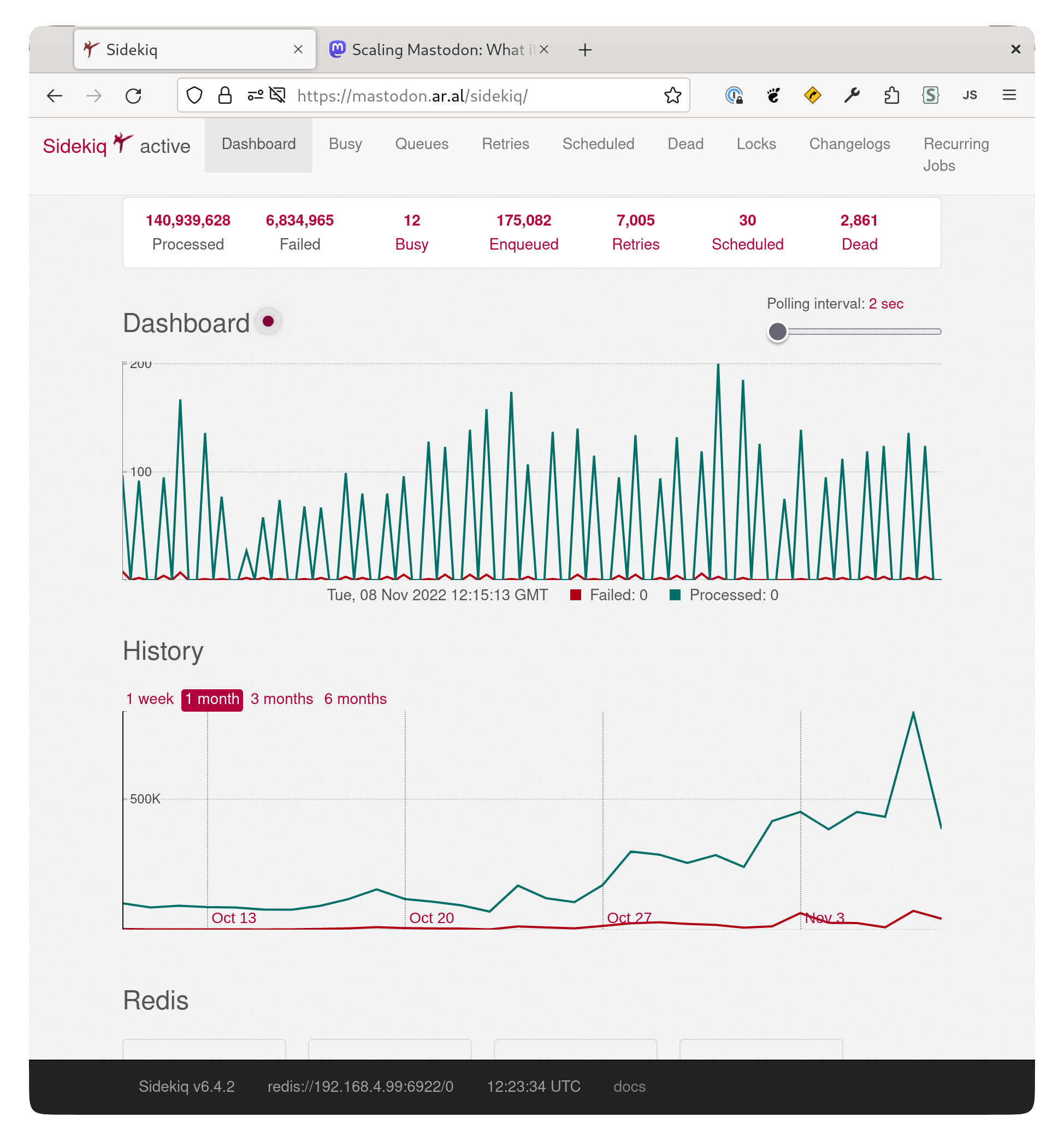The (surprising) oldest full sentence in the Canaanite language in Israel
Apparently this comb has an inscription on it which reads “May this tusk root out the lice of the hair and the beard.” It was made from an imported elephant tusk!
The comb measures just 3.5 by 2.5 centimeters (roughly 1.38 by 1 inches), with teeth on both sides, although only the bases remain; the rest of the teeth were likely broken long ago. One side had thicker teeth, the better to untangle knots, while the other had 14 finer teeth, likely used to remove lice and their eggs from beards and hair. Further analysis showed noticeable erosion at the comb's center, which the authors believe was likely due to someone's fingers holding it there during use.Source: Ancient wisdom: Oldest full sentence in first alphabet is about head lice | Ars TechnicaThe authors also used X-ray fluorescence spectroscopy, Fourier-transform infrared spectroscopy, and digital microscopy to confirm that the comb is made of ivory from an elephant tusk, suggesting it was imported. The team sent a sample from the comb to the University of Oxford’s radiometric laboratory, but the carbon was too poorly preserved to accurately date the sample.
The inscription consists of 17 letters (two damaged) that together form a complete seven-word sentence. The letters aren’t well-aligned, per the authors, nor are they uniform in size; the letters become progressively smaller and lower in the first row, with letters running from right to left. When whoever engraved the comb reached the edge, they turned it 180 degrees and engraved the second row from left to right. The engraver actually ran out of room on the second row, so the final letter is engraved just below the last letter in that row. Still, said engraver had to be fairly skilled, given the small size of the lettering.
Rituals for moving jobs when working from home
Terence Eden reflects on changing jobs when working from home and how… weird it can be. While I’ve been based from two different converted garages during the past decade, I’ve travelled a lot so it has felt different.
I can imagine, though, if that’s not the case, it can all feel a little bit discombobulating!
One Friday last year, I posted some farewell messages in Slack. Removed myself from a bunch of Trello cards. Had a quick video call with the team. And then logged out of my laptop. I walked out of my home office and sat in my garden with a beer.Source: Job leaving rituals in the WFH era | Terence Eden’s BlogThe following Monday I opened the door to the same office. I logged in to the same laptop. I logged into a new Slack - which wasn’t remarkably different from the old one. Signed in to a new Trello workspace - ditto. And started a video call with my new team.
I’ll admit, It didn’t feel like a new job!
There was no confusing commute to a new office. No having to work out where the toilets and fire exits were. No “here’s your desk - it’s where John used to sit, so people might call you John for a bit”. I didn’t even have to remember people’s names because Zoom showed all my colleagues' names & job titles.
There was no waiting in a liminal space while receptionists worked out how to let me in the building.
In short, there was no meaningful transition for me.
Decentralisation begins at decentring yourself
Aral Balkan, who has 22,000 followers on the Fediverse and who recently had a birthday, has written about the influx of people from Twitter. As I’ve found, especially on my personal blog, you can essentially run a Distributed Denial of Service (DDoS) attack on yourself by posting a link to your blog to the Fediverse. As each server pings it, the server can eventually buckle under the weight.
What follows is a really useful post in terms of Aral’s journey towards what he calls the ‘Small Web’. While I don’t necessarily agree that we should all have our own instances, I do think it’s useful for organisations of every size to run them.
If Elon Musk wanted to destroy mastodon.social, the flagship Mastodon instance, all he’d have to do is join it.Thank goodness Elon isn’t that smart.
I jest, of course… Eugen would likely ban his account the moment he saw it. But it does illustrate a problem: Elon’s easy to ban. Stephen, not so much. He’s a national treasure for goodness’ sake. One does not simply ban Stephen Fry.
And yet Stephen can similarly (yet unwittingly) cause untold expense to the folks running Mastodon instances just by joining one.
The solution, for Stephen at least, is simple: he should run his own personal instance.
(Or get someone else to run it for him, like I do.)
Running his own instance would also give Stephen one additional benefit: he’d automatically get verified.
After all, if you’re talking to, say, @stephen@social.stephenfry.com, you can be sure it’s really him because you know he owns the domain.
Organisations are not just joining the Fediverse, they're setting up their own instances
It’s great to see that Raspberry Pi Ltd. and other organisations are setting up their own servers. Not only does it enable them to verify themselves, but that of their employees and affiliates really easily.
I’m sure it won’t all be smooth sailing ahead for the Fediverse, especially when it comes to trust and verification. But I’m optimistic that the recent migration from Twitter is ultimately for the good of the human species.
We’ve opted to host our own instance. We’ve done this because, with multiple instances out there, we had to decide how to make sure people following us knew that our Raspberry Pi account was the “real” one.Source: An escape pod was jettisoned during the fighting | Raspberry PiDistributed systems are an interesting corner case when it comes to trust. Because when it comes to identity, you eventually have to trust someone. Whether that’s a corporation, like Twitter, or a government, or the person themselves. Trust is needed.
With Mastodon the root of trust for identity is the admin of the instance you’re on, and the admins on all the other instances, where you’re trusting them to remove “fake” accounts. Or, if you’re running your own instance, then it’s the domain name registrars. The details of our domain registration of the
raspberrypi.socialdomain may be redacted for privacy, but our domain registrar knows who we are, and is the same registrar we use for all our other domains. They trust our government-issued identity to prove that we are Raspberry Pi Ltd. You can trust them, they trust the government, and ultimately the government trusts us because they can use Ultima Ratio Regum, the last argument of kings.
A cluttered desk is a sign of genius
Perhaps it's because I'm not a designer like the author of this post, but organising your desk space like this leaves me cold. My space looks like this.

I’m proud of what I’ve done with my desk setup over the last five years. Through careful observation of what’s working and what’s not, I’ve continued to improve how it serves my creative pursuits. Still, when I look at it in the morning, I get a rush of creative energy and optimism.
Source: The Evolution of the Desk Setup | Arun
Quotation-as-title comes from a plaque my father had on his (spectacularly untidy) desk...
Decentralising online learning
A “technical presentation that is structured and designed for a non-technical audience” by Stephen Downes. With the Twitter lifeboats again being deployed, this is a timely look at how federated and decentralised technologies can be used for removing the silos from online learning.
Source: Open Learning in the Fediverse | Stephen DownesAs a new generation of digital technologies evolves we are awash in new terms and concepts: the metaverse, the fediverse, blockchain, web3, acitivitypub, and more. This presentation untangles these concepts and presents them from the perspective of their impact on open learning.
Hyperfinancialisation has taken over UK politics
I’m reading This Could Be Our Future by (Kickstarter co-founder) Yancey Strickler at the moment. It rails against hyperfinancialisation and then provides a way of thinking about the world differently.
As this opinion piece in The Guardian points out, we need a way of thinking about politics and the market which isn’t driven (literally!) by investment bankers.
Rishi Sunak’s first job was at the US investment bank Goldman Sachs. He went on to spend 14 years in the sector before becoming an MP. In many ways, his unelected appointment marks the highpoint of big finance’s takeover of Britain’s political and economic system – a quiet infiltration of Westminster and Whitehall has been taking place over several decades and gone largely unremarked.Source: With Rishi Sunak, the City’s takeover of British politics is complete | Aeron Davis[…]
Looking at the coalition government, every senior figure who managed Treasury economic policy – George Osborne, Danny Alexander, David Cameron, Rupert Harrison, John Kingman and Nick Macpherson – later gained well-paid positions in the financial sector. And three of the last five chancellors have come from the sector. Jeremy Hunt’s current advisers all come from investment banking.
This matters because investment bankers have very little to do with the real economy that ordinary people inhabit. They don’t run businesses. They don’t deal with actual product and customer markets. Their work is confined to financial markets, aiding corporate financial manoeuvres, and trading and managing their own financial assets. Their primary aim is to make profits from such activities, regardless of how it affects the real economy, the national interest or employees. If that means shorting the pound or breaking up a successful company for quick profits, then so be it.
[…]
And an overpowered financial sector has certainly not been conducive to good governance, either. There’s nothing democratic about extensive public service cuts being used to pay for saving the private banking sector, as in the aftermath of the 2008 crash, or the bond markets determining the credibility of governments, or the fact that the bankers and hedge funds are the biggest single source of Conservative party donations. Nor is trust in British democracy likely to be enhanced by a super-rich PM who has allegedly avoided taxes and made a fortune as a financier at the nation’s cost.
AI is coming for middle management
It’s hard not to agree with this. Things may play out a little different in the EU, but in the USA and UK I can foresee the middle classes despairing.
Legacy businesses will have to rely on retail and hourly support staff to be able to reduce management head count as a means of freeing up money for implementing automation. In order to do that, they will need to implement AI management tools; chat bots, scheduling, negotiating, training, data collection, diagnostic analysis, etc., before hand.Source: AI will replace middle management before robots replace hourly workers | Chatterhead SaysOtherwise, they will be left to rely on an overly bureaucratic and entrenched middle management layer to do so and that solution is likely to come from outsourcing or consultants. All the while, the retail environment deteriorates as workers are tasked to replace themselves without any additional benefits; service declines, implementation falters, costs go up, more consulting required.
Union formation across the retail landscape will force corporations to reduce management head count and implement AI management solutions which focus on labor relations. The once fungible and disposable retail worker will be transformed into a highly sought after professional who will be relied upon specifically for automation implementation.
Image: DeepMind
Being 'quietly fired' at work
I’ll not name the employer, and this wasn’t recent, but I’ve been ‘quietly fired’ from a job before. I never really knew why, other than a conflict of personalities, but there was no particular need for pursuing that path (instead of having a grown-up conversation) and it definitely had an impact on my mental health.
I think part of the reason this happens is because a lot of organisations have extremely poor HR functions and managers without much training. As a result, they muddle through, avoiding conflict, and causing more problems as a result.
There may not always be a good fit between jobs and the workers hired to do them. In these cases, companies and bosses may decide they want the worker to depart. Some may go through formal channels to show employees the door, but others may do what Eliza’s boss did – behave in such a way that the employee chooses to walk away. Methods may vary; bosses may marginalise workers, make their lives difficult or even set them up to fail. This can take place over weeks, but also months and years. Either way, the objective is the same: to show the worker they don’t have a future with the company and encourage them to leave.Source: The bosses who silently nudge out workers | BBC WorklifeIn overt cases, this is known as ‘constructive dismissal’: when an employee is forced to leave because the employer created a hostile work environment. The more subtle phenomenon of nudging employees slowly but surely out of the door has recently been dubbed ‘quiet firing’ (the apparent flipside to ‘quiet quitting’, where employees do their job, but no more). Rather than lay off workers, employers choose to be indirect and avoid conflict. But in doing so, they often unintentionally create even greater harm.
[…]
An employee subtly nudged out the door isn’t without legal recourse, either. “If you were to look at each individual aspect of quiet firing, there’s likely nothing serious enough to prove an employer breach of contract,” says Horne. “However, there’s the last-straw doctrine: one final act by the employer which, when added together with past behaviours, can be asserted as constructive dismissal by the employee.”
More immediate though, is the mental-health cost to the worker deemed to be expendable by the employer – but who is never directly informed. “The psychological toll of quiet firing creates a sense of rejection and of being an outcast from their work group. That can have a huge negative impact on a person’s wellbeing,” says Kayes.
What does work look like? (redux)
If you’re digging a hole or otherwise doing manual work, it’s obvious when you’re working and when you’re not. The same is true, to a great extent, when teaching (my former occupation).
Doing what I do now, which is broadly under the banner of ‘knowledge work’, it can be difficult for others to see the difference between when I’m working and when I’m not. This is one of the reasons that working from home is so liberating.
The funny thing is, sitting alone thinking doesn’t “look” like work. Even more so if it’s away from your computer.Source: What “Work” Looks Like | Jim Nielsen’s Blog[…]
I recently had a conversation with a long-time colleague, someone I know and respect. I found it interesting that even he, who has worked in software since the 90’s, still felt odd when he wasn’t at his computer “working”. After decades of experience, he knew and understood that the most meaningful conceptual progress he made on problems was always away from his computer: on a run, in the shower, laying in bed at night. That’s where the insight came. And yet, even after all these years, he still felt a strange obligation to be at his computer because that’s too often our the metal image of “working”.
Image: Charles Deluvio
Bridging the divide
Sure, it’s an advert for beer, but it’s also a brilliant example of how you can bring people together IRL to get to know one another despite seemingly-intractable differences.
[embed]www.youtube.com/watch
Source: This New Heineken Ad is Briliant #OpenYourWorld | YouTube
AI everywhere in education
Jon Dron makes a good point here that we need to put the humanity back into education, otherwise we’re going to have AI everywhere and a completely broken system.
I thought it would be fun, in an ironic kind of way, to use an AI art generator to illustrate this post…
To a significant extent, we already have artificial students, and artificial teachers teaching them. How ridiculous is that? How broken is the system that not only allows it but actively promotes it?Source: So, this is a thing… | Jon Dron[…]
This is a wake-up call. Soon, if not already, most of the training data for the AIs will be generated by AIs. Unchecked, the result is going to be a set of ever-worse copies of copies, that become what the next generation consumes and learns from, in a vicious spiral that leaves us at best stagnant, at worst something akin to the Eloi in H.G. Wells’s Time Machine. If we don’t want this to happen then it is time for educators to reclaim, to celebrate, and (perhaps a little) to reinvent our humanity. We need, more and more, to think of education as a process of learning to be, not of learning to do, except insofar as the doing contributes to our being. It’s about people, learning to be people, in the presence of and through interaction with other people. It’s about creativity, compassion, and meaning, not the achievement of outcomes a machine could replicate with ease. I think it should always have been this way.
Image: DALL-E 2 (“robot painting a picture of a robot painting a picture of a robot, in the style of Rene Magritte”)
Apple Watch Ultra vs The Scottish Highlands
Happy as I am with my Garmin Venu 2s, if I didn’t need to also buy an iPhone to use one, I probably already would have bought an Apple Watch Ultra. Despite my skinny wrists, my recent health scare means that the cellular capability and ECG combined with a more-than-24-hour battery life would seal the deal.
So I was interested in this review by someone who took the Ultra up into the Scottish Highlands. It turns out he loved it.
I don’t think you can properly test a device like this without taking it out into the field. So the day my Ultra arrived, I booked myself onto a sleeper train up to the Scottish Highlands for a three day hiking trip to really see how it performed. I ended up hiking just over 61 miles.Source: Testing an Apple Watch Ultra in the Scottish Highlands | David SmithThe standard Apple Watches are incredibly capable devices, that I’ve used to great utility on countless hiking trips, but using them in that context always felt a bit like I was pushing the boundary of what it was intended for or capable of. Whereas the Ultra is very much designed for the backcountry context. It is more rugged, more long lasting and much easier to read…all while still being 100% an Apple Watch and not compromising any of the features that make a standard Apple Watch so useful.
Censorship and the porn tech stack
They say that technical innovation often comes from the porn industry, but the same is true of new forms of censorship.
For those who don’t know or remember, Tumblr used to have a policy around porn that was literally “Go nuts, show nuts. Whatever.” That was memorable and hilarious, and for many people, Tumblr both hosted and helped with the discovery of a unique type of adult content.Source: Matt on Tumblr | Why “Go Nuts, Show Nuts” Doesn’t Work in 2022[…]
[N]o modern internet service in 2022 can have the rules that Tumblr did in 2007. I am personally extremely libertarian in terms of what consenting adults should be able to share, and I agree with “go nuts, show nuts” in principle, but the casually porn-friendly era of the early internet is currently impossible….
[…]
If you wanted to start an adult social network in 2022, you’d need to be web-only on iOS and side load on Android, take payment in crypto, have a way to convert crypto to fiat for business operations without being blocked, do a ton of work in age and identity verification and compliance so you don’t go to jail, protect all of that identity information so you don’t dox your users, and make a ton of money. I estimate you’d need at least $7 million a year for every 1 million daily active users to support server storage and bandwidth (the GIFs and videos shared on Tumblr use a ton of both) in addition to hosting, moderation, compliance, and developer costs.
Image: Alexander Grey on Unsplash
Google Stadia as pandemic fever dream
I think the comment at the end of this article about people being wary of Stadia because Google tends to shut down services is spot-on. I really liked Stadia, and bought five controllers which I either used within our family or gifted.
During the pandemic, I completed Sniper Elite 4 and all of the DLCs via Stadia. I bought FIFA 22 and Cyberpunk 2077 at full-price as I crossed my fingers behind my back hoping the service would survive.
Ultimately, being refunded for hardware purchases and games I bought is a win-win situation for me. I cancelled my Stadia Pro account earlier this year, dabbling first with Xbox Game Cloud via a Razer Kishi, then upgrading my PlayStation Plus account on the PS5, and more recently investing in a Steam Deck.
The good news is that the true Armageddon situation for Stadia customers is not happening. Google is issuing refunds, which will save dedicated Stadia players from potentially losing hundreds of dollars in unplayable games. The post says: "We will be refunding all Stadia hardware purchases made through the Google Store, and all game and add-on content purchases made through the Stadia store." That notably excludes payments to the "Stadia Pro" subscription service, and you won't get hardware refunds from non-Google Store purchases, but that's a pretty good deal. Existing Pro users will be able to play, free of charge, from now until the shutdown date. The controllers are still useful as wired USB controllers, and a campaign is already starting to get Google to unlock the Bluetooth connection.Source: Google kills Stadia, will refund game purchases | Ars Technica[…]
Google Stadia never lived up to its initial promise. The service, which ran a game in the cloud and sent each individual frame of video down to your computer or phone, was pitched as a gaming platform that would benefit from Google’s worldwide scale and streaming expertise. While it was a trailblazing service, competitors quickly popped up with better scale, better hardware, better relationships with developers, and better games. The service didn’t take off immediately and reportedly undershot Google’s estimates by “hundreds of thousands” of users. Google then quickly defunded the division, involving the high-profile closure of its in-house development studio before it could make a single game.
[…]
Google’s damaged reputation made the death of Stadia a self-fulfilling prophecy. No one buys Stadia games because they assume the service will be shut down, and Stadia is forced to shut down because no one buys games from it.
Brexit Britain = hungry kids
As a former teacher, I almost cried reading this. Can someone with some authority and leadership stand up and say not only was Brexit a terrible idea, but the current government’s fiscal “strategy” will absolutely break this country?
Children are so hungry that they are eating rubbers or hiding in the playground because they can’t afford lunch, according to reports from headteachers across England.Source: Schools in England warn of crisis of ‘heartbreaking’ rise in hungry children | The Guardian[…]
One school in Lewisham, south-east London, told the charity about a child who was “pretending to eat out of an empty lunchbox” because they did not qualify for free school meals and did not want their friends to know there was no food at home.
Community food aid groups also told the Observer this week that they are struggling to cope with new demand from families unable to feed their children. “We are hearing about kids who are so hungry they are eating rubbers in school,” said Naomi Duncan, chief executive of Chefs in Schools. “Kids are coming in having not eaten anything since lunch the day before. The government has to do something.”

















